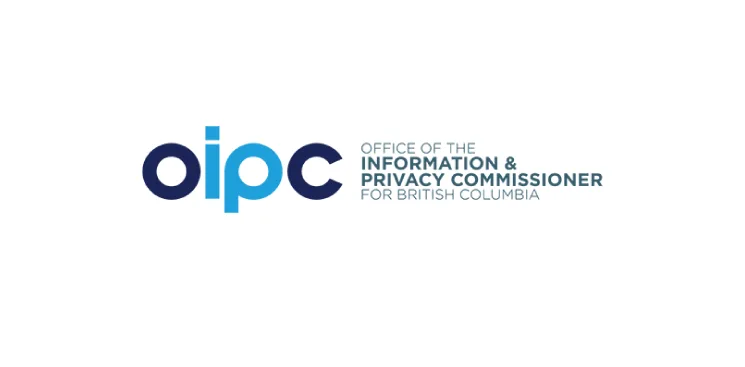
Am I entitled to a free copy of my credit report?
If you’re like most people, you have no idea what's in your credit report. Yet banks, businesses, and others look at it to decide whether to lend you money, hire you, or do business with you. Ordering your credit report lets you see what they’re seeing. And it's free.
What you should know
A credit report contains details of a person’s history of paying bills and borrowing money, as well as other information about them. Credit reports are prepared by credit reporting agencies, sometimes called credit bureaus. The two main ones in Canada are Equifax and TransUnion. These agencies collect information from banks and businesses, and from public documents like court and marriage records. (Learn more about what goes into a credit report in our guidance on taking charge of your credit report.)
Under the law in BC, you have the right to see your credit report. The credit reporting agencies must mail you a free copy if you ask. (You can also get your credit report online, but you might have to pay for that.)
You can request a free credit report once a year. It’s a good idea to contact both agencies, as they might have different information about you.
For the steps to follow, see order your credit report, below.
Credit reporting agencies use a formula to turn the credit information they have about you into a credit score. Your score, which is sometimes called your credit rating, can range from 300 to 900. A high score is good. For more information about credit scores, see our guidance on improving your credit score.
You won’t see your credit score on your credit report. But you can request it. Equifax charges for it. TransUnion will send it to you when you subscribe to their credit monitoring service for a monthly fee.
Check your credit score before borrowing money
Before you apply for a loan, you may want to see your credit score. It’ll give you an idea of your chances of being approved. It may also help you negotiate a lower interest rate.
“I was planning on applying for a loan and I wanted to see my credit score. I found a website advertising free credit scores. All I had to do was sign up for a free trial of their credit monitoring service. I received my credit score, but the following month I was charged a monthly subscription fee because I didn’t cancel the free trial."
– Steve, Vancouver, BC

Some companies offer “free” credit reports or credit scores. Often, they’ll ask you for your credit card number. By providing it, you may be signing up for a “free trial” of the company’s paid service. If you don’t cancel before the trial ends, your credit card may be charged. (Keep track of those “free trial” deadlines!)
Some companies provide your credit score for free and hope to make money down the line, by providing loans or other services.
Borrowell offers access to low-interest loans. They partner with Equifax to give you your Equifax credit score for free. Borrowell pays the fee for the credit score for you, and will give you an updated credit score every three months.
Mogo also partners with Equifax to give you your credit score for free. Mogo offers a free app that allows you to check your credit score and apply for loans.
The two main credit reporting agencies in Canada, Equifax and TransUnion, both offer additional services beyond providing a copy of your credit report. These additional services include:
credit monitoring, where they send you an alert if something changes in your credit report
regular credit score updating
identity theft protection, where you get help resolving identity theft
Services like these might help you find fraud or errors in your credit report, or take steps to improve your credit score.
But these services typically involve a monthly fee.
When you order your credit report, you don’t have to buy the additional services offered by the credit reporting agency. It’s your choice.
Order your credit report
For a free copy of your credit report, print and fill out the request form and mail it to the appropriate credit reporting agency:
Include a copy of two pieces of identification (copying both sides), such as a driver's licence, birth certificate, and passport. If your address isn’t up-to-date on either piece of ID, provide an additional document — such as a utility bill or bank statement — with your current home address.
You should receive your credit report in the mail in two to three weeks. Under the law in BC, the agency must respond to your request within 30 days.
Ordering your credit score
The Equifax request form has a section that allows you to order your credit score with your credit report. They charge a fee for the credit score, but it’s less than the fee if you order your credit score online from Equifax.
You can also get a free copy of your credit report by phone. You’ll be asked to confirm your identity by answering some personal questions. You may also need to provide your social insurance number (SIN) or credit card information.
The numbers to call are:
Equifax: 1-800-465-7166
TransUnion: 1-800-663-9980 (except Quebec)
You should receive your credit report in the mail in two to three weeks. Under the law in BC, the agency must respond to your request within 30 days.
You can order your credit report online from either credit reporting agency. TransUnion offers free online access to your credit report information. Equifax charges a fee.
This method is fastest. You’ll receive your credit report online within a few minutes.
Who can help

Office of the Information and Privacy Commissioner
You can ask them to review a credit reporting agency’s decision.



